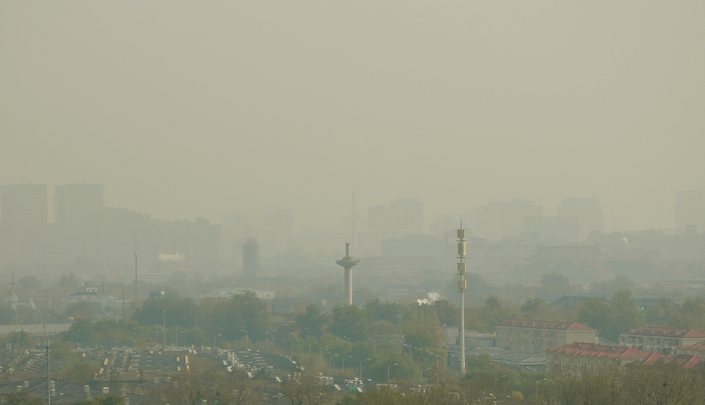Last week we were treated to hazy skies and smoky air courtesy of wildfires in Saskatchewan. It’s a little mind boggling to fathom the size of that fire to know that we could actually smell the smoke thousands of miles away.
It’s also a reminder of how interconnected we all are and how our actions can have a direct impact beyond our immediate area.
You may be familiar with the Little Steps Big Impact program designed to reduce ground level ozone levels in Omaha. Ozone is a harmful gas pollutant when it’s at ground level which can have many adverse health effects, especially for people with existing breathing problems (like asthma and emphysema). It’s also harmful to pets and plants.
Ozone creates a hazy appearance across the city, not unlike smog, and contains harmful nitrous oxide and volatile organic compounds (VOCs). Ground level ozone is more prevalent in the summer, when more pollution is produced by small gas engines (mowers, toys, etc.) and the sun “cooks” the air.
Fortunately, there are a few easy things that you can do to prevent ground level ozone, creating cleaner air, a less polluted environment and an overall healthier place to live.
To do your part:
- Drive less: carpool, walk, bike or take the bus to reduce fuel emissions. (And you can do all of this for free with the TravelSmart program!)
- When you do drive:
- Run all of your errands in one trip or combine errands with your daily commute.
- Don’t idle. Idling your car for just 30 seconds uses more fuel than restarting your engine.
- Use ethanol. Ethanol is a biofuel that produces less pollution.
- Fill your gas tank early in the morning or late at night when it’s cool. Fumes increase with higher temps and dissipate overnight without the sun.
- Don’t top off the tank. When the pump clicks to shut off, your tank is full; adding more increases emissions and risks overfilling.
- Run all of your errands in one trip or combine errands with your daily commute.
- Use electric motors or manual tools to maintain your yard; small gas power engines release as much as 25 percent unburned gasoline into the air. If you must use gas, do it in the cool parts of the day.
These little steps will have a big impact, making Omaha and the surrounding area a cleaner and healthier place to live and work.
